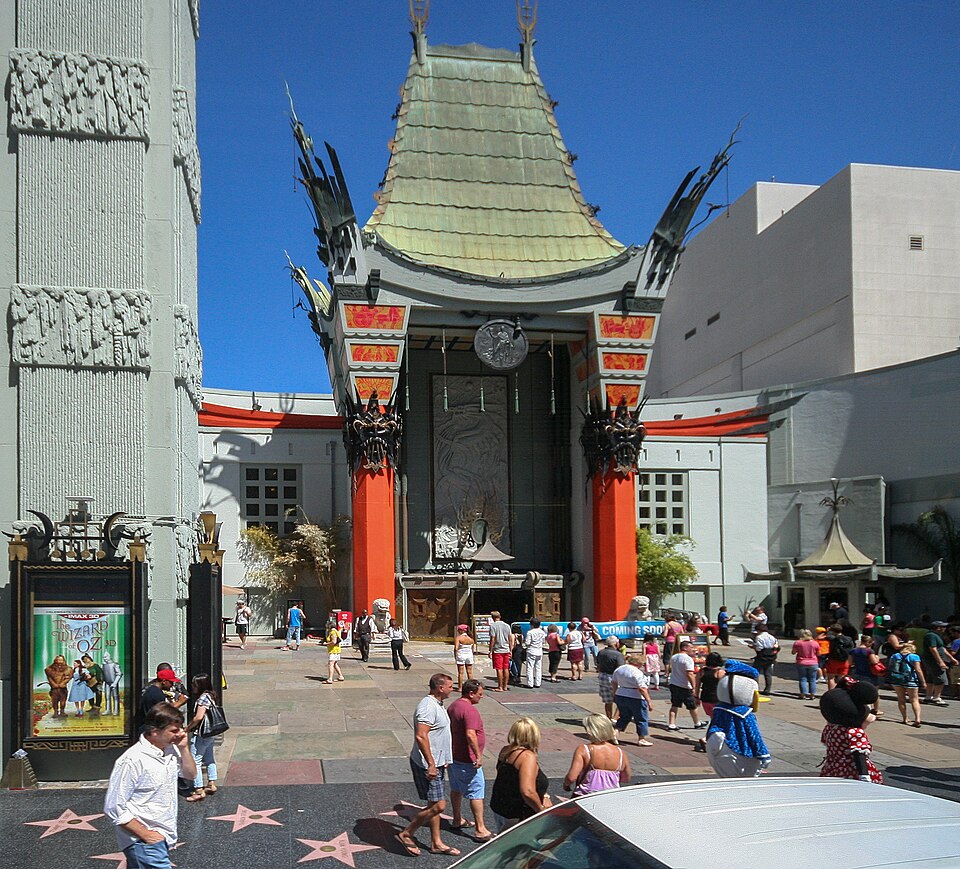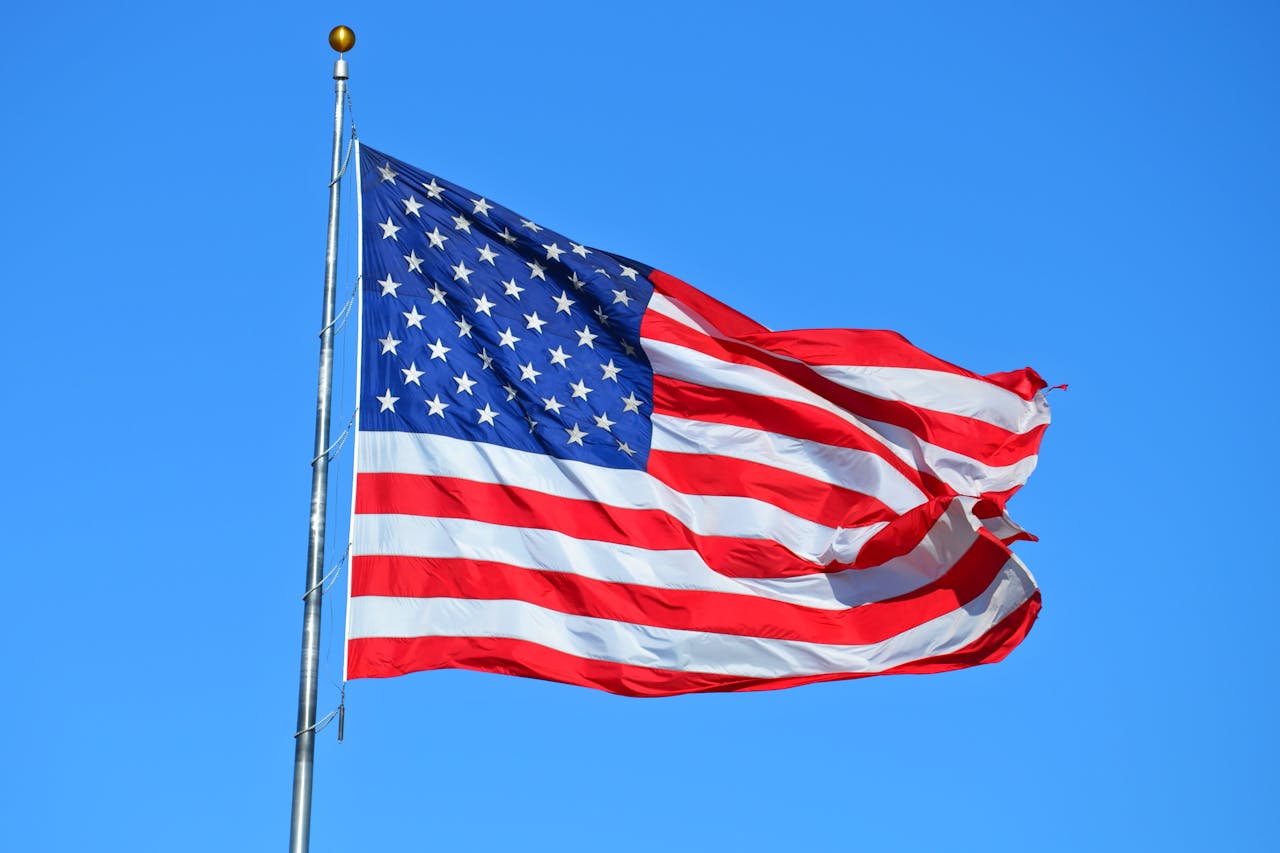Travel can reveal more than scenery. In some towns, old rules are still enforced, shaping how visitors move, dress, and even dig in the sand. What feels like a quirky local tradition can quickly become a citation if taken lightly. These ordinances may look like relics, yet officers and park rangers still apply them, especially in busy tourist seasons. The result is a set of laws that make sense locally but surprise newcomers who simply want to enjoy the day.
Carmel-by-the-Sea, California: High-Heel Permits
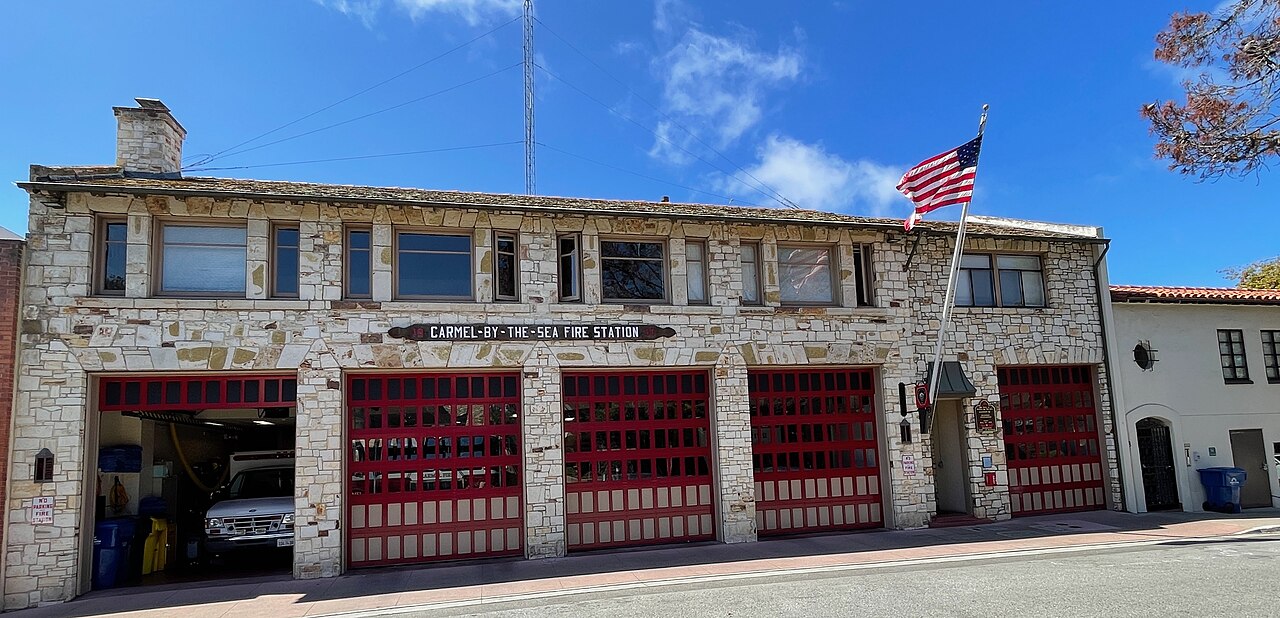
In Carmel, walking the quaint streets requires unusual footwear awareness. Shoes with heels over two inches and with tips less than one square inch technically need a free permit from City Hall. The rule originated as a liability measure to protect the city from uneven sidewalks. Locals treat it as part of the charm, but it remains enforceable. Visitors often stop by the clerk’s office just to grab the quirky permit as a keepsake.
Mackinac Island, Michigan: Strict Ban on Cars and E-Bikes
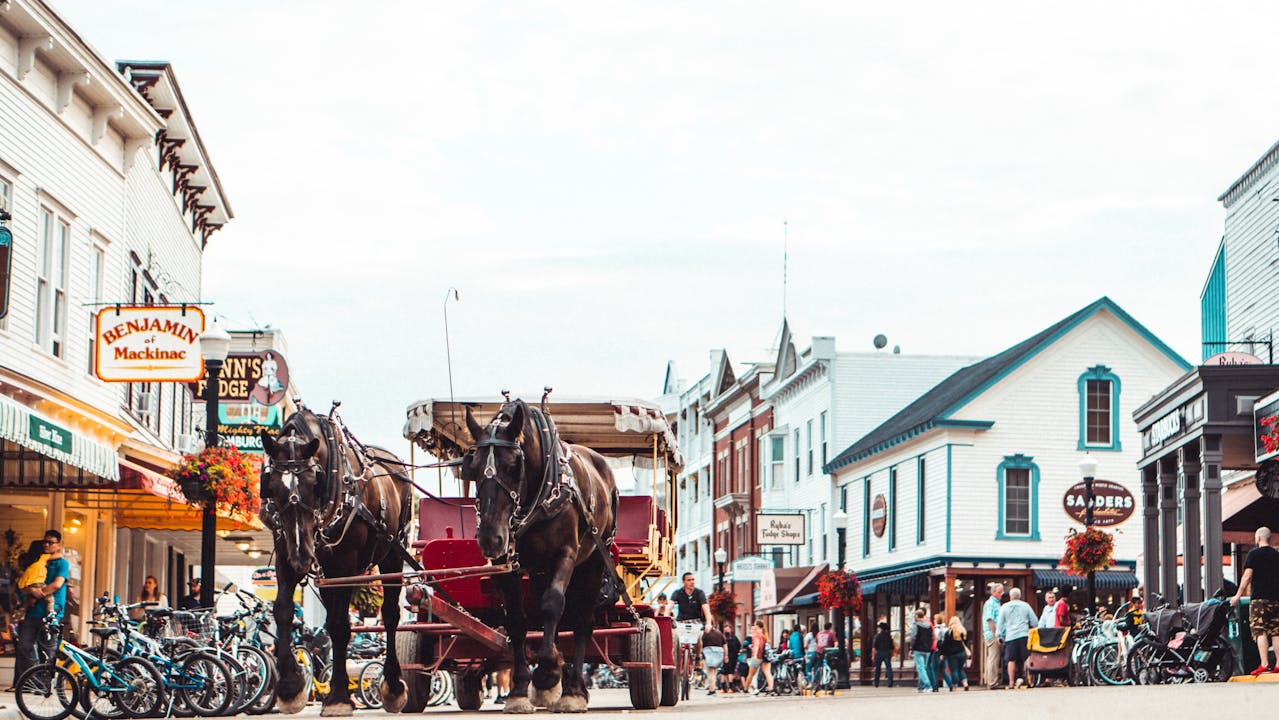
Mackinac Island’s streets echo with horse hooves instead of engines. Cars have been banned for over a century, and that tradition now extends to many electric bikes. Only certain accessibility exemptions allow them. The law is meant to protect both the island’s historic character and the safety of crowded streets filled with bicycles and carriages. Tourists renting a quick e-bike without checking the rules risk a fine before they’ve left the dock.
Myrtle Beach, South Carolina: Thong Swimsuits Outlawed
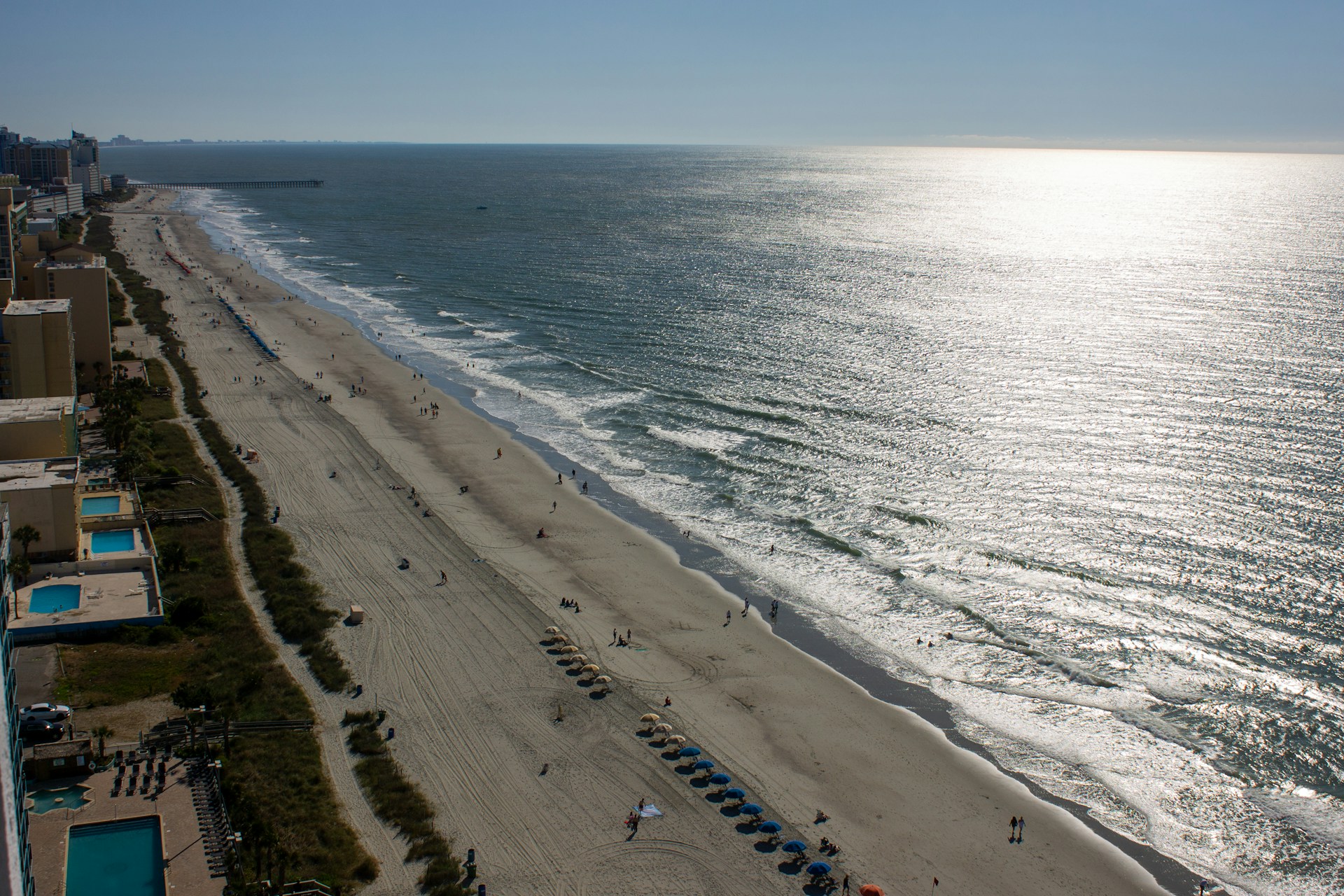
Myrtle Beach welcomes sunseekers but maintains a modesty rule that regularly catches visitors off guard. Thong-style swimwear is prohibited on public beaches, and police do enforce the ordinance. It is classified as indecent exposure under city code, with fines and possible court appearances for violations. Many tourists arrive ready for a carefree beach day only to be reminded by signs—and sometimes officers—that not all swimwear is welcome.
Ocean City, Maryland: Sand Holes Must Stay Shallow
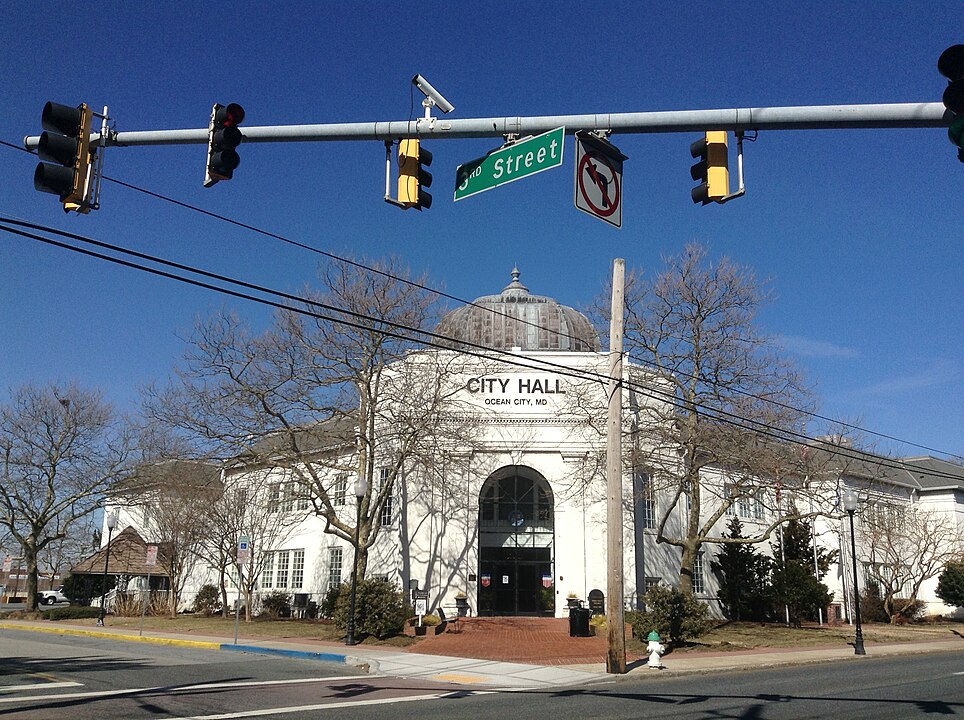
Digging in the sand seems like harmless fun until it runs into city code. In Ocean City, holes deeper than the knees are not permitted and must be filled before leaving. The rule exists because collapses can trap unsuspecting children or adults, creating real emergencies. Lifeguards and beach patrol enforce it every summer, often reminding families with shovels that the law isn’t about spoiling fun but preventing accidents.
Key West, Florida: Feeding Chickens Is Illegal
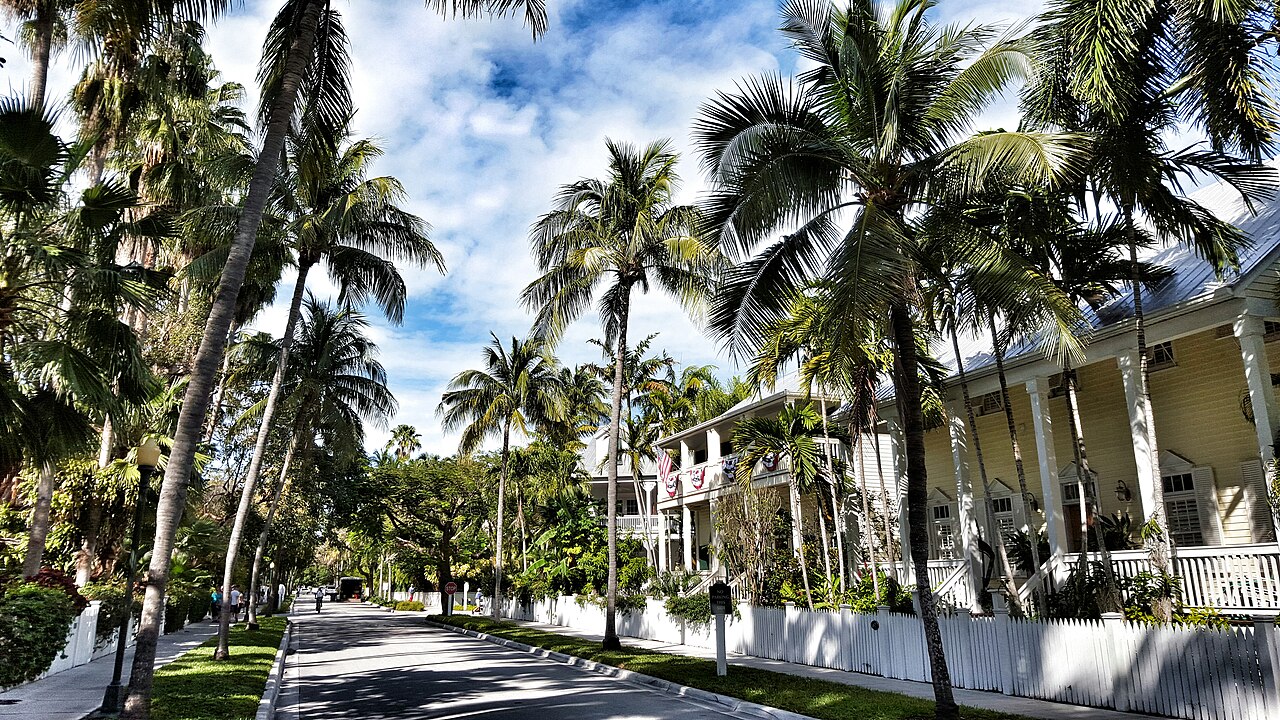
The roosters of Key West are as much a part of the landscape as palm trees, but visitors often don’t realize that feeding them is against the law. City ordinances prohibit providing food or water to the free-roaming chickens. Officials say the rule helps curb overpopulation and protects the birds from disease outbreaks linked to scattered scraps. A quick snack tossed in good spirit can result in a citation, leaving tourists surprised.
Honolulu, Hawaii: No Phones in Crosswalks
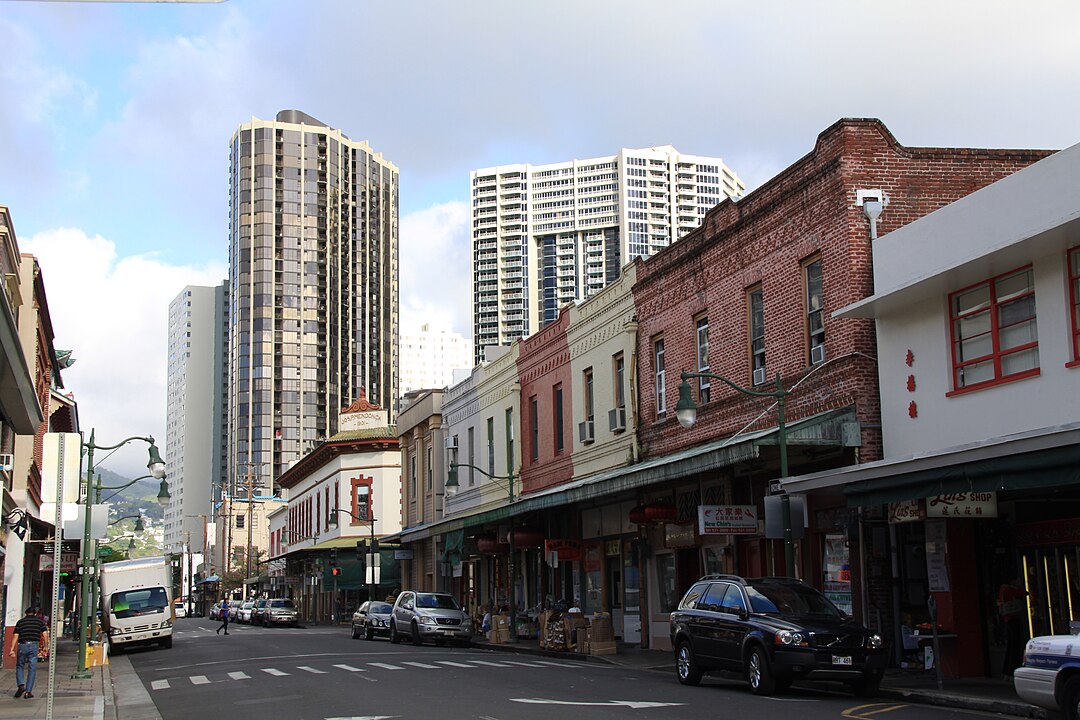
In Honolulu, stepping into a crosswalk while looking down at a phone is more than a safety risk—it is an actual violation. The law bans pedestrians from viewing electronic devices while crossing, except during emergencies. Police issue warnings and tickets, especially in busy tourist districts like Waikiki, where screen use and heavy traffic collide. What feels like a casual glance at a text can quickly become a fine under this ordinance.
Los Angeles, California: Silly String Ban on Halloween
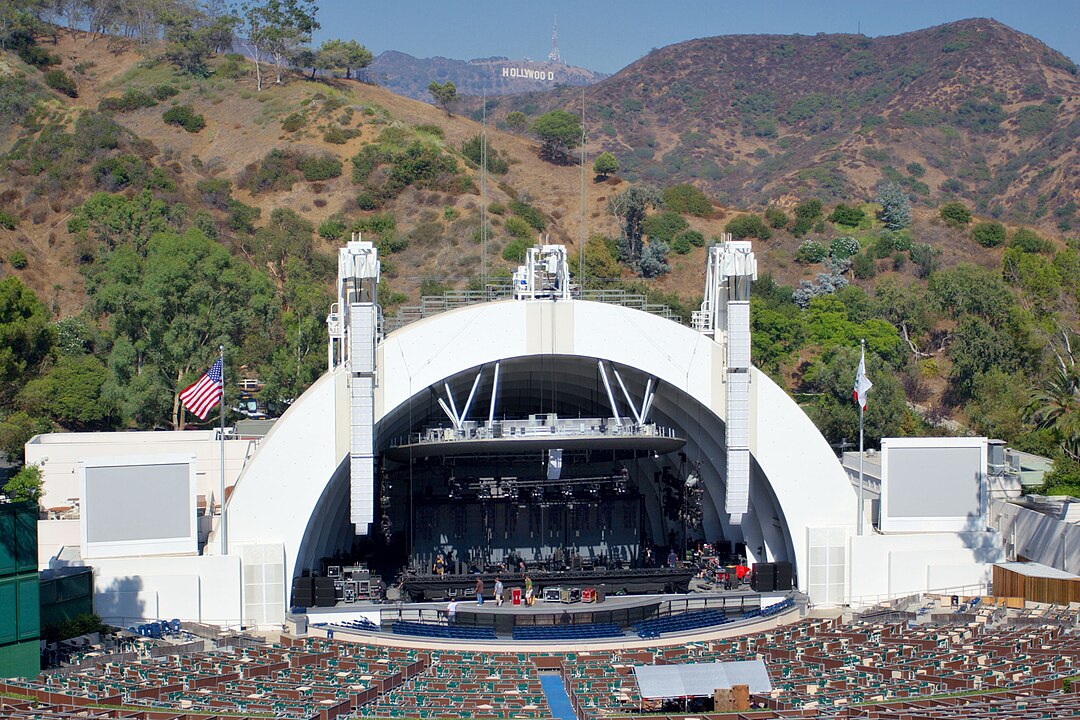
Hollywood Boulevard is a carnival on Halloween night, but one rule cuts through the chaos. Selling or spraying silly string on Oct. 31 is a misdemeanor punishable by fine. The law was created after years of cleanup costs and rowdy street parties left officials fed up. Police actively enforce it, patrolling with signs and warnings. For tourists expecting carefree fun, bringing aerosol cans can turn the holiday into an expensive lesson.
Laguna Beach, California: Balloons Prohibited
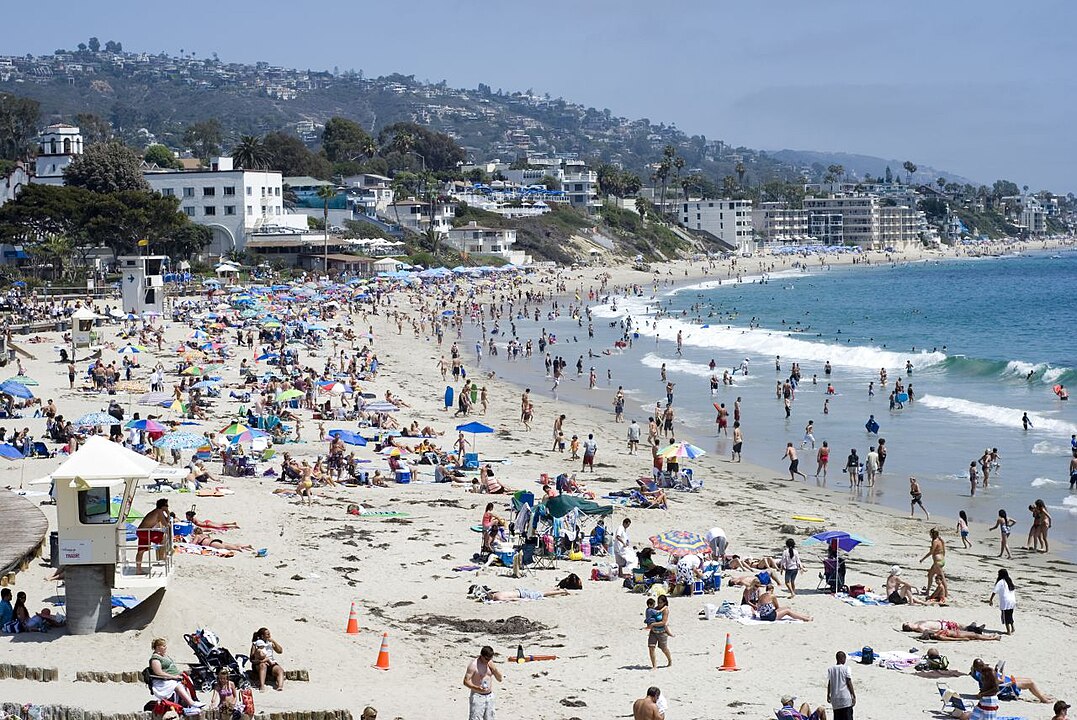
Laguna Beach bans the sale, distribution, and public use of balloons to protect its coastal ecosystem and prevent wildfires. The law covers both latex and Mylar balloons, and fines are issued when violations are spotted. Locals see the rule as common sense, but it surprises visitors planning birthdays or picnics on the sand. Families are asked to swap balloons for flags or flowers, keeping the coastline cleaner and safer.
New Braunfels, Texas: No Disposable Containers on Rivers
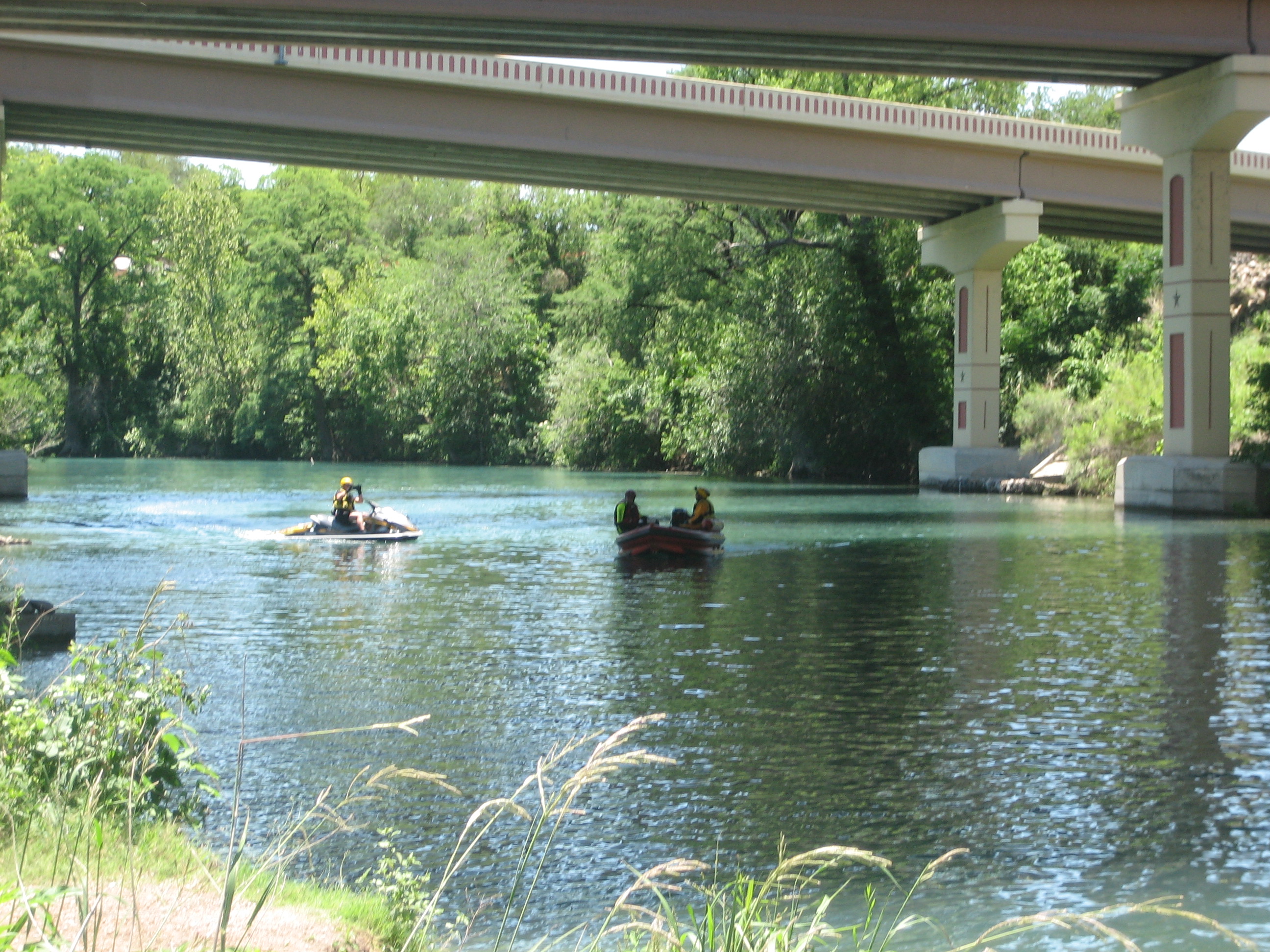
Floating the Guadalupe or Comal Rivers is a summertime tradition, but in New Braunfels, every container must be reusable. Disposable cans, bottles, and food wrappers are banned outright. Police and river wardens enforce the law, with fines reaching up to $500 for violators. The ordinance was put in place after years of cleanup problems. For first-time visitors, it often means swapping coolers before hitting the water.
